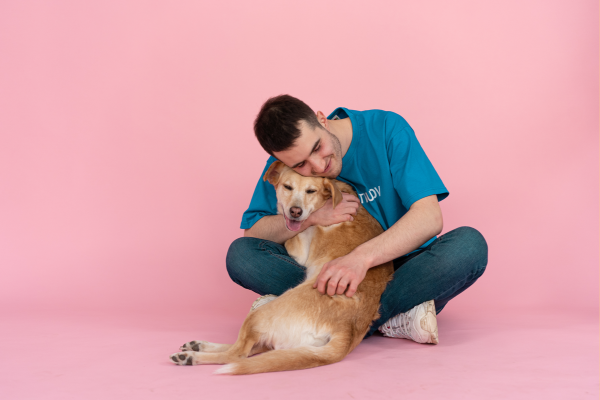Autism service dogs provide invaluable support to individuals with autism, helping them navigate daily challenges and live more independently. These specially trained dogs can assist with various tasks, from calming anxiety to providing safety and companionship.
The Role of Service Dogs for Individuals with Autism
Service Dogs for Autism May Reduce Anxiety and Stress in their Handlers
Autism service dogs can provide comfort and reduce stress levels in adults and children with autism, especially in overwhelming situations. Service dogs for autism achieve this by:
Providing a Constant Companion
- Love: Service dogs offer unwavering companionship and affection, which reduces feelings of loneliness and isolation.
- Security and Safety: The presence of a service dog can provide a sense of security and safety, especially in unfamiliar or overwhelming environments.
Calming Techniques
- Deep Pressure Therapy: Service dogs can be trained to apply gentle pressure through physical contact, such as leaning against or sitting on their human, which can have a calming effect.
- Distraction: Dogs can divert attention from stressful situations by engaging in play or other activities.
- Grounding Techniques: Some service dogs are trained to help their handlers return their focus to the present moment, reducing anxiety and panic attacks.
Sensory Input
- Tactile Stimulation: A dog’s soft fur and gentle touch can provide calming sensory input for individuals with autism.
- Auditory Comfort: A service dog’s breathing or gentle panting can be soothing to individuals with autism who struggle with hypersensitivity to certain sounds.
Social Interaction
- Facilitating Social Connections: Dogs can help break the ice and initiate social interactions with others.
- Reducing Social Anxiety: The presence of a service dog can reduce social anxiety and make it easier for individuals with autism to engage in social situations.
Routine and Structure
- Predictability: A service dog can provide a sense of routine and predictability, which can be comforting for individuals with autism.
- Daily Structure: Dogs can help establish and maintain daily routines, such as meal times, bedtime, and exercise.
Service Dogs for Autism Provide Safety and Security in their Humans
Service dog training includes providing various safety measures for individuals with autism. Here are some key ways they enhance security:
Preventing Wandering
- Constant Supervision: Service dogs are always by their handler’s side, which can reduce the risk of them wandering off.
- Alerting Caregivers: If the individual starts to wander, the dog can alert caregivers or even physically guide them back.
Responding to Emergencies
- Seeking Help: In an emergency, the dog can be trained to seek help from others, such as alerting a nearby person or going to a designated safe place.
- Calming the Individual: During a crisis, the dog can comfort and distract the individual, helping to de-escalate the situation.
Navigating Public Spaces Safely
- Traffic Awareness: Service dogs can be trained to assist their handlers in crossing streets safely, avoiding obstacles, and navigating crowded areas.
- Public Awareness: The presence of a service dog can often deter potential threats or unwanted attention.
Providing a Barrier
- Physical Presence: The dog’s presence can be a barrier, discouraging unwanted physical contact or intrusions.
Reducing Anxiety and Overwhelm
As mentioned above, service dogs can be calming presences for their humans with autism. This is a large part of keeping their humans happy and healthy.
Training Service Dogs for Autism Assistance
Training a service dog is a complex and time-consuming process that requires specialized knowledge and skills. Here are some key aspects of autism service dog training:
- Task Training: Dogs are trained to perform specific tasks, such as interrupting repetitive behaviors, providing deep pressure therapy, or alerting caregivers to potential dangers.
- Public Access Training: Dogs must learn to behave appropriately in public settings, such as restaurants, stores, and medical facilities.
- Socialization: Dogs are exposed to various people, places, and situations to help them develop good social skills.
- Obedience Training: Dogs must be well-behaved and responsive to commands.
The Impact of Service Dogs on Individuals with Autism
Service dogs significantly enhance the lives of adults and children with autism by providing emotional support, physical assistance, and safety. They offer companionship, reduce anxiety, and help navigate social situations. Service dogs also assist with daily living skills, prevent wandering, and respond to emergencies. By providing these essential services, service dogs empower individuals with autism to live more independent and fulfilling lives.
Justice Speaks is a dedicated organization working to ensure individuals with autism and their service dogs receive the respect and accommodations they deserve. We advocate for fair treatment and equal access in public spaces, workplaces, and communities. By educating the public and enforcing ADA rights, we empower individuals with autism to live more independently and confidently. Contact us to join a supportive community that promotes disabled rights.


